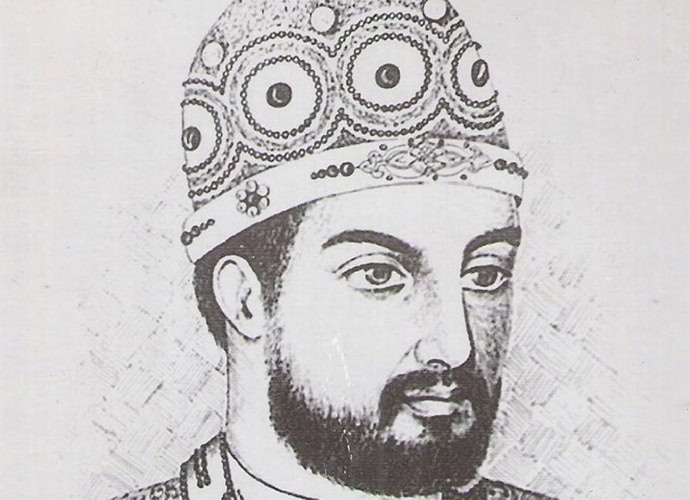There is a lot of controversy regarding Alauddin Khilji in the wake of the new Bollywood film, “Padmavati,” which purports to depict Khilji’s conquest of Chittor in 1303 and his supposed obsession with Rani Padmini of Chittor (most of it based on a poem of questionable authenticity).
Alauddin Khilji was one of India’s greatest kings and one of the world’s greatest military geniuses.
He was born in Delhi in 1266 AD (and hence an Indian; not a foreign invader) and ruled as Sultan of Delhi from 1296 AD – 1316 AD.
Khilji greatly expanded the empire that he inherited from his uncle, Sultan Jalaluddin Khilji, after killing him. Because many of his conquests were of Hindu kingdoms, including the kingdoms of Chittor, Devgiri, Warangal (from where he acquired the famous Kohinoor diamond), Gujarat, Ranthambore, and the Hoysala and Pandya kingdoms, Khilji is often seen as a villain by Hindutva groups.
But, in fact, India owes a great debt to Alauddin Khilji.
This is because during his rule, the Mongols of the Chagatai Khanate invaded India. Khilji, by his military brilliance, managed to defeat the Mongols not once, but *five* times: in 1298 AD (led by Ulugh Khan, and inflicting 20,000 casualties on the Mongols), 1299 AD in Sindh (led by Zafar Khan), 1299 AD in Delhi (leading the army himself against the Mongols), 1305 AD (led by Malik Nayak, and inflicting 8000 casualties on the Mongols), and 1306 AD (led by Malik Kafur); and a “draw” in the sixth Mongol invasion of 1303 AD (again personally leading the army), where the Mongols were unable to defeat Khilji, but were able to sack Delhi.
This was a military feat unprecedented in those days, because the Mongols were an unstoppable force wherever else they went. No one in the rest of the world – whether the Russian Empire or the mighty Persian empire or the Baghdad Caliphate – could stand up to the dreaded Mongols. Khilji defeated them 5 times and had a draw in a 6th confrontation. The armies of the Delhi sultanate under Khilji were some of the most disciplined and well-trained in the world, and that is why they could defeat the Mongols time and again.
Now, people who do not know about the Mongols may ask at this point: “so what’s the big deal? A Muslim ruler whose ancestors were foreign invaders defeats another foreign invader!”
But that would betray a colossal ignorance of Mongol warfare.
The Mongols had a very peculiar way of conducting war. When they did conquer a country, they would raze it to ground. They used to leave nothing in that place – no trace of the civilization that existed there. They never settled in the place they conquered. They would take whatever of value they could back home to Mongolia (or, in the case of the Chagatai Khanate, Uzbekistan), especially what new technology they could find; they would take away women as slaves and kill the men, except those with special skills that they did not have and could use; and they would leave a wasteland behind. The Mongols did not just invade and conquer; they exterminated civilizations. There is a reason the Mongols were referred to as the “scourge of God.”
Had the Mongols conquered India, India would have been set back at least two or three hundred years in its development. All knowledge and culture that had been accumulated in India over millenia would have been destroyed. Every library, every school, every temple, every home would have been burnt to the ground. When Hulagu Khan of the Mongol Ilkhanate sacked Baghdad in 1258, he left the city largely depopulated. He destroyed all the great libraries of the Abbasid empire (it is said that the rivers turned black with ink because of the huge number of books the Mongols took from the libraries and threw in them), and blood was flowing in the Euphrates and Tigris for weeks after his assault. He single-handedly ended what is known as the Islamic Golden Age. A similar thing happened to Russia after the Mongols invaded it; it is considered that the Mongol invasion of Russia set it back by 200 years in its development.
So the Mongols were not like any other invader. If Khilji had lost to the Mongols, it would not have been as benign as when Ibrahim Lodi lost to Babur. In that case, one Muslim ruler was replaced by another, but India itself did not suffer greatly. If the Mongols had won against Khilji, they would have wiped Indian civilization off the map of the world. You would not be arguing today about who built a mosque on top of a temple – nothing would have remained to tell a tale.
If we have a Hindu culture that survives in India, a large credit for that has to go to Alauddin Khilji, one of history’s greatest warriors and kings.
He may have been the bane of Hindus when he ruled; but he saved India from the Mongols. And thus, in a strange way, he saved Hinduism.
Courtesy : @Sheshadri Kumar
Why India Should Be Grateful to Alauddin Khilji

